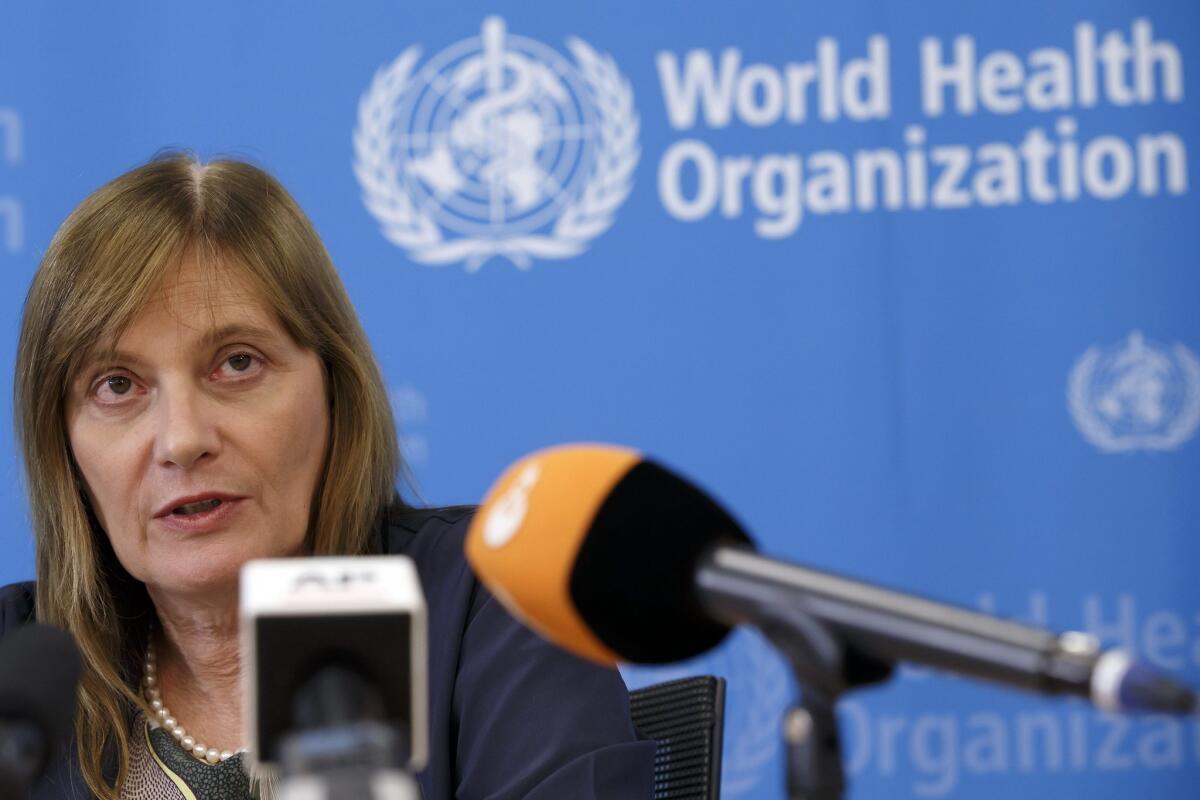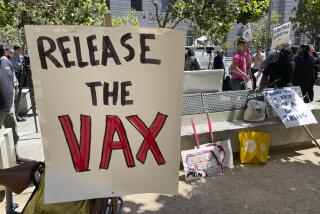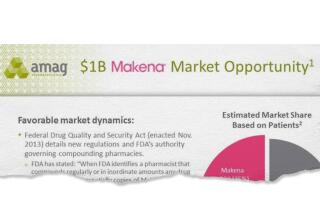Experimental Ebola drug ‘exhausted,’ as experts debate ethical use

- Share via
As U.S. medical experts raised concerns Tuesday about the use of experimental drugs to treat the Ebola virus, makers of the unapproved medication ZMapp said their supply has been “exhausted.”
In a statement published online late Monday, Mapp Biopharmaceuticals Inc., of San Diego, said it had complied with all legal requests for the drug and provided the medication “at no cost.”
The statement did not say how many doses were distributed or who had received them. Company officials have said they are legally prohibited from disclosing patient information.
“The available supply of ZMapp has been exhausted,” the statement read.
To date, a handful of private and government agencies have reported either use of the drug or say they have requested it.
They include the case of two infected Americans who received the drug, Dr. Kent Brantly and Nancy Writebol, who are now at Emory University Hospital, in Atlanta; the government of Liberia, which announced Tuesday that it was receiving doses to treat two doctors; and Carlos III Hospital, in Madrid.
The Spanish hospital was caring for a 75-year-old Catholic priest who became infected in Liberia, was repatriated and reported Tuesday to have died. The hospital declined to say whether he had been given the dose of ZMapp before he died, citing patient confidentiality.
The U.S. Food and Drug Administration released a statement Tuesday saying that the U.S. government “assisted in connecting the government of Liberia with the manufacturer. Since the drug was shipped for use outside the U.S., the appropriate export procedures are being followed.”
Hours after Mapp’s statement, a World Health Organization panel advised Tuesday that it was ethical to use experimental, non-approved drugs to combat the Ebola virus, and that five such treatments were being considered for “compassionate use.”
At a media briefing at Georgetown University on Tuesday, a panel of medical experts expressed worries that the focus on experimental treatments would distract from the delivery of basic and badly needed medical services and personnel to West Africa.
“We absolutely don’t know at this time if [ZMapp] or any other experimental medications may help, or in contrast, hurt people,” said Dr. Jesse Goodman, former chief scientist for the U.S. Food and Drug Administration and head of the Center on Medical Product Access, Safety and Stewardship, at Georgetown University Medical Center.
“We also don’t know if other factors like getting state-of-the-art medical care such as intravenous hydration and blood products in the case of Dr. Brantley could have helped as well,” he said.
While experimental drugs like ZMapp have not caused harmful reactions in animals, Goodman said that didn’t mean it could not cause harm in humans.
“There was one instance in London where six individuals received an antibody that had not been tested in humans but had been safe in animals and had serious and threatening side effects,” Goodman said. “Such side effects could decimate trust in medicine and public health and interfere potentially with outbreak control.”
Goodman also said that most clinical trials, even of promising drugs, “ultimately fail because the drugs turn out not to be effective.”
Dr. Kevin Donovan, a professor of pediatrics and director of the Center for Clinical Bioethics at GUMC, told reporters that there was too little information available to determine if proposed Ebola drugs such as ZMapp were safe.
“So far, three people have received one candidate therapy; two haven’t died yet,” Donovan said. “This doesn’t mean it’s effective and it doesn’t mean it’s safe. We don’t know what harms it may due long term, or even short term.”
Donovan suggested that energy and resources were better spent on providing supportive care to those infected.
“To do the most good for the most people affected means to do our best with supportive therapy for patients, public health containment measures for the population and protective barriers particularly for the healthcare workers and caretakers on the front line,” Donovan said. “These are the scarce resources that can be allocated immediately and must be supplied immediately in order to control this epidemic as soon as possible.”
Follow @montemorin for science news







